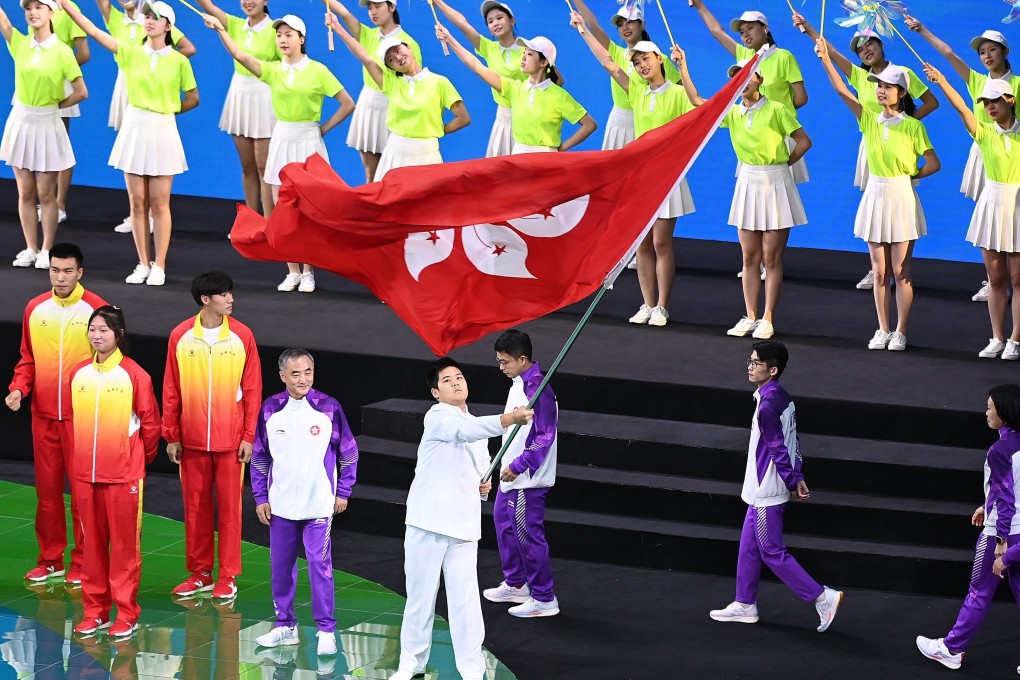China’s National Games torch passes to Hong Kong, Macau and Guangdong
- Xian’s hosting of elite sporting event passes pandemic test with no coronavirus cases linked to games
- All eyes now on the Winter Olympics in Beijing in February

Twelve days after the games officially began, Chinese Premier Li Keqiang declared the sports event closed on Monday night, capping an hour-long spectacle at the Xian Olympic Sports Centre in Shaanxi province.
Along with thousands of masked spectators, the chief executives of Hong Kong and Macau, Carrie Lam Cheng Yuet-ngor and Ho Iat-seng, attended the ceremony, which featured martial artists in a celebration of traditional Chinese culture and performers in personal protective equipment “showing Chinese power” during the pandemic.
Gou Zhongwen, director of the games and the head of China’s General Administration of Sport, praised the people of Shaanxi for holding a successful and safe event.
“The games committee took scientific and rigorous epidemic prevention measures ... Along with more than 6,000 health workers, we built strong safeguards for the games,” Gou said.